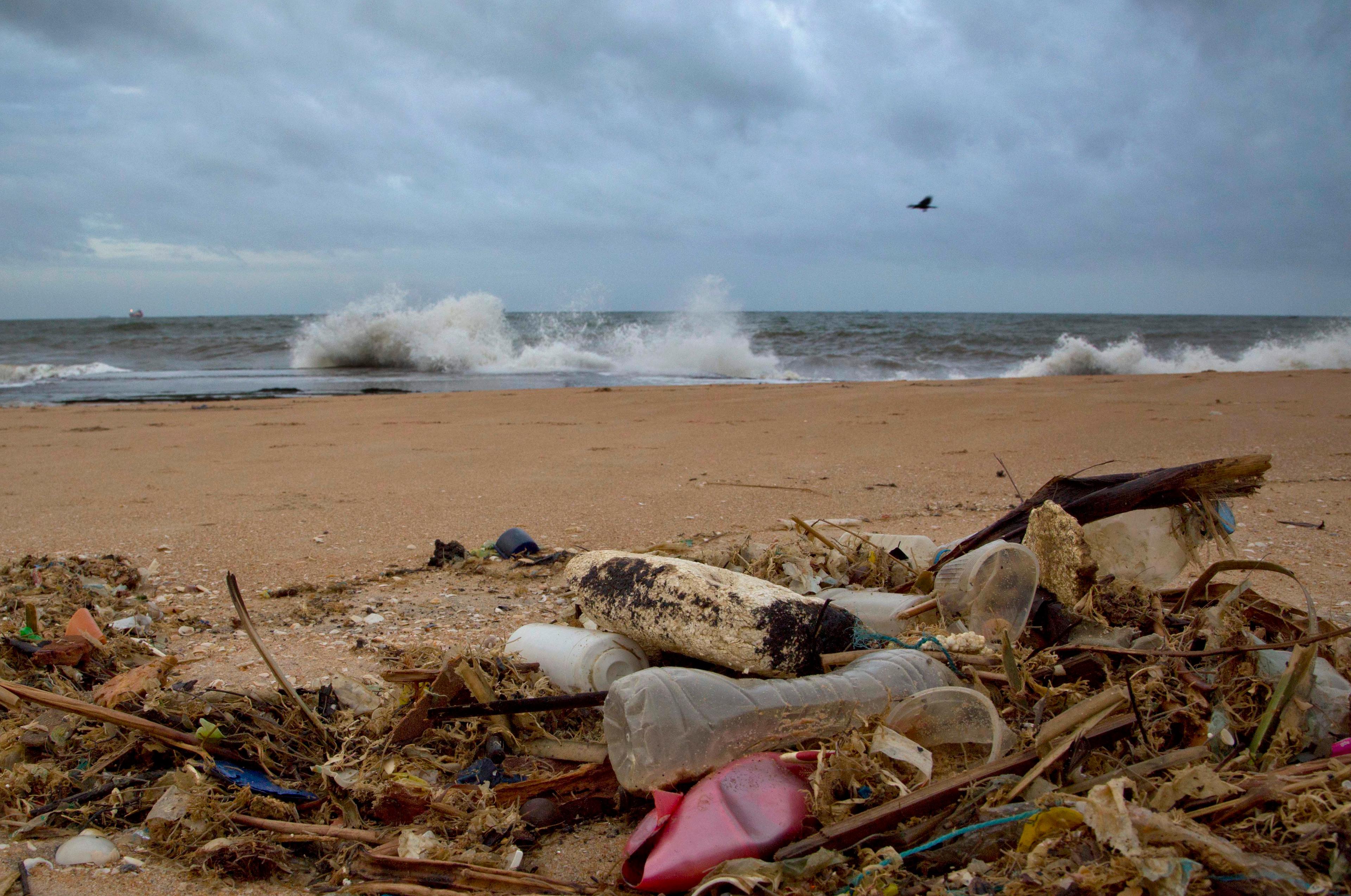
Vicki Nichols Goldstein, of Boulder, gets a lot of puzzled looks when she says the name of her organization is the Inland Ocean Coalition.
What do the words inland and ocean have to do with each other? A lot, in fact, especially when it comes to plastic pollution.
“We significantly impact the ocean from Colorado,” Nichols Goldstein said. “If you think about the rivers, they are our conduits to the ocean. So anytime you have plastics that end up in your yard, in the street ... They can eventually make their way into waterways and then flow into the ocean.”
This is her life’s work — educating people who don’t see the coast every day about how their daily actions impact the ocean. About 8 million tons of plastic end up in the ocean every year, she said. But much of that actually doesn’t come from discarded fishing nets, plastic bags or water bottles. Most of it is microplastic.
“For example if you wash one of your fleece jackets, you’ll have about 100,000 pieces of plastic fibers that go from your washing machine into the wastewater treatment facility and they don’t have the capacity to pull out those very tiny fibers,” Nichols Goldstein said. “We are getting billions of small microplastic fibers going into our streams and creeks that will eventually go into the river.”
That level of microplastic flowing into the ocean is creating what she calls a “plastic smog.” Instead of those giant, Texas-sized islands of trash floating through the water, most of the pollution comes from plastic that’s been degraded down by sunlight. Nichols Goldstein said the smog is greatly affecting the health of marine life and the ocean’s ecosystem.
It might feel a little impossible to not contribute to the problem when washing your clothes can send plastic into the ocean. Even something as green as composting can get you into trouble if you’re not careful, she said.
“One example is your milk carton,” Nichols Goldstein said. “People think, oh that milk carton is compostable, it’s covered in wax. No. It is covered in a plastic coating. So when you are composting materials that have plastic in them they’re going into the soil. Those tiny pieces of plastic again break down in the soil ... And they eventually will get washed into waterways.”
One more way Colorado is connected to ocean health? Fracking. Plastic pellets that are used to make single-use products like water bottles or straws come from liquid gas, or ethane. Nichols Goldstein thinks the plastic industry sees the fracking boom as a renaissance.
“While we as a community are trying to reduce our single-use plastics,” she said. “The industry is really gearing up for expansions.”
Still feeling hopeless? Well, Nichols Goldstein doesn’t expect people to change their entire lives over night. There are ways to help with ocean health in Colorado that won’t cause dramatic disruptions, she said.
“We can reduce our single-use plastics by carrying bottles and bags that are metal and reusable,” Nichols Goldstein said. “Go organic, be careful with the chemicals that you use. Don’t toss trash and cigarette butts. Maintain your car because approximately one gallon of oil goes into the environment if you don’t maintain your car properly.”









